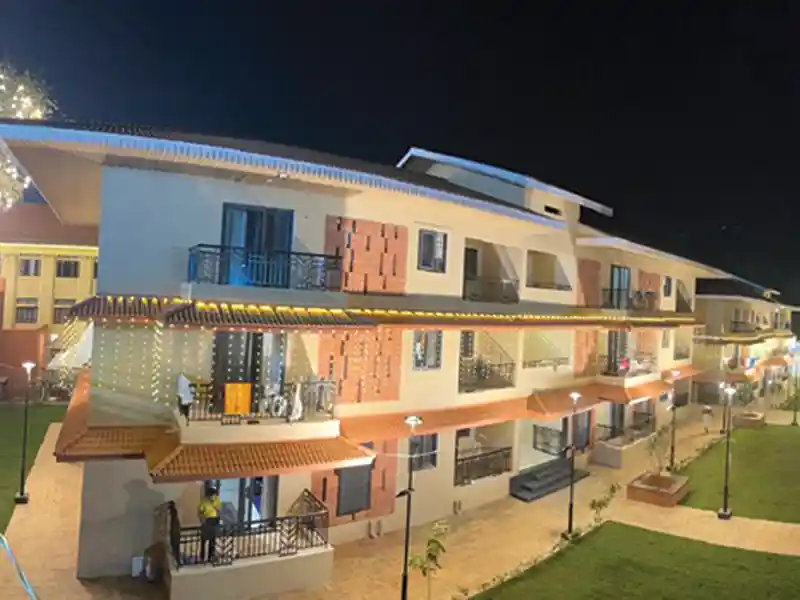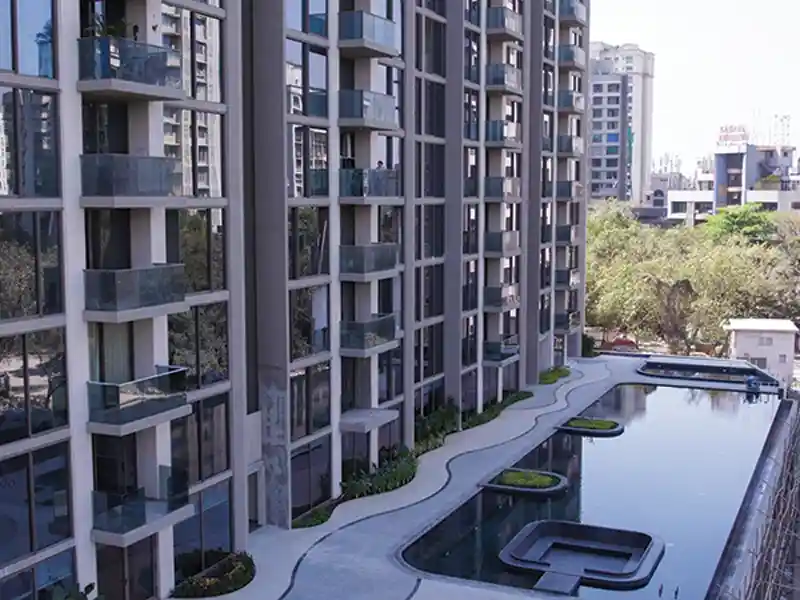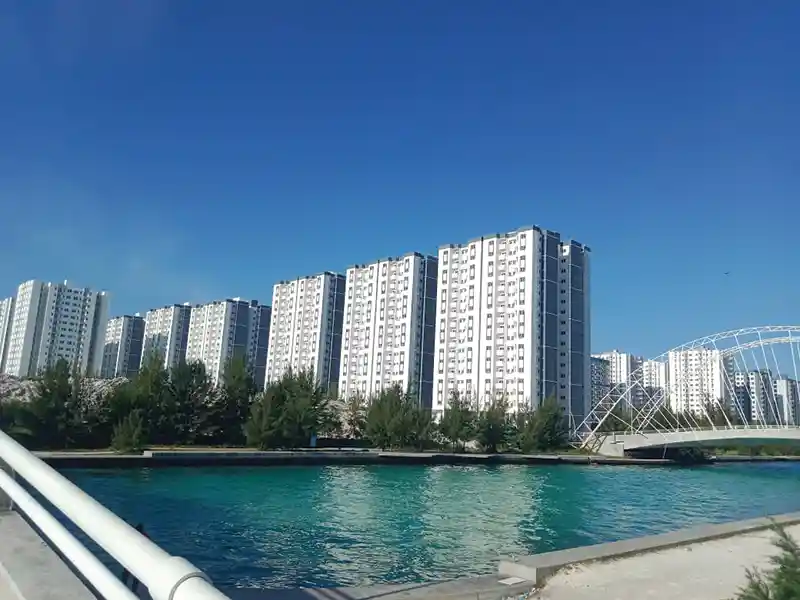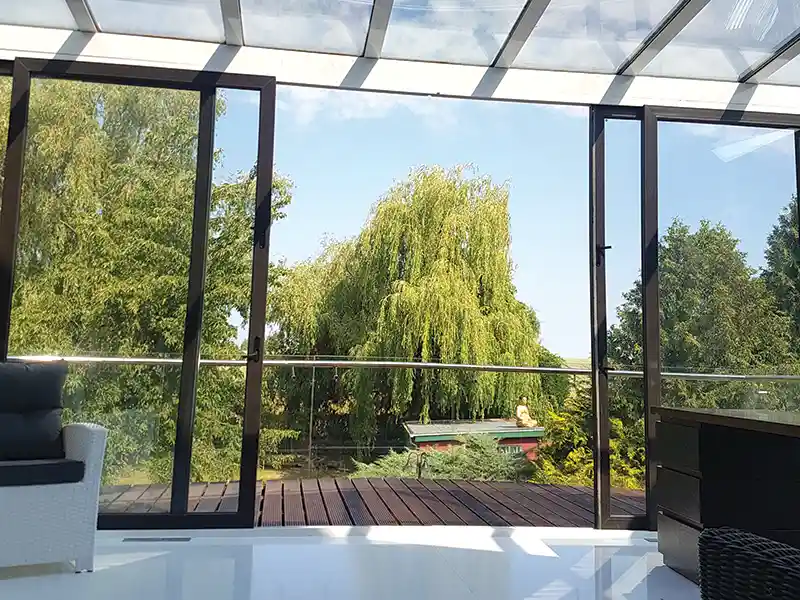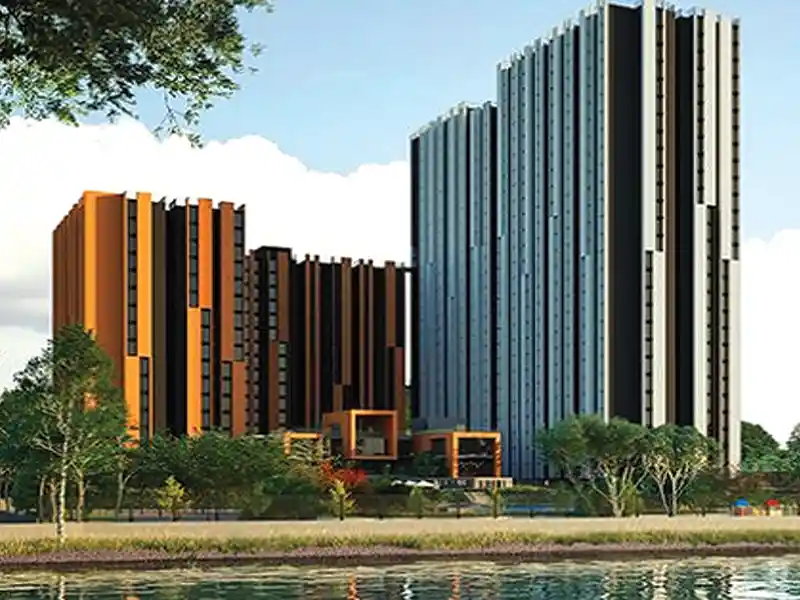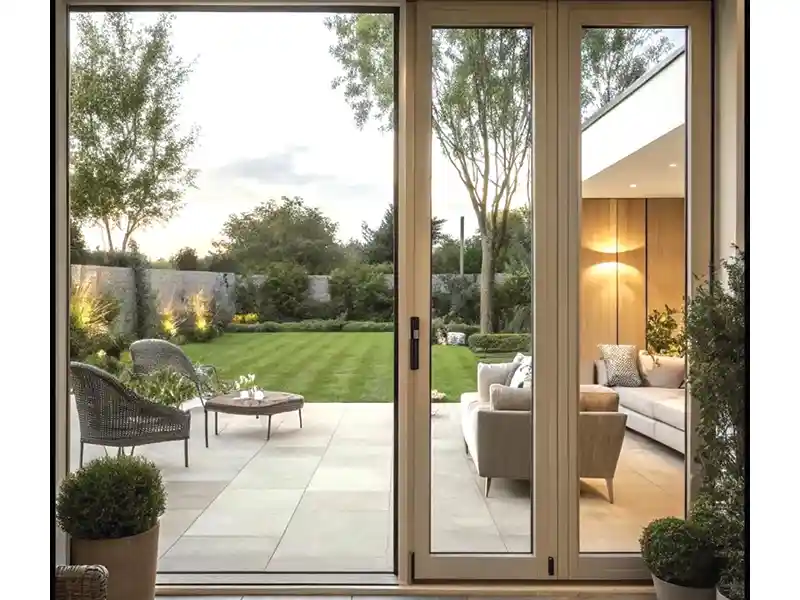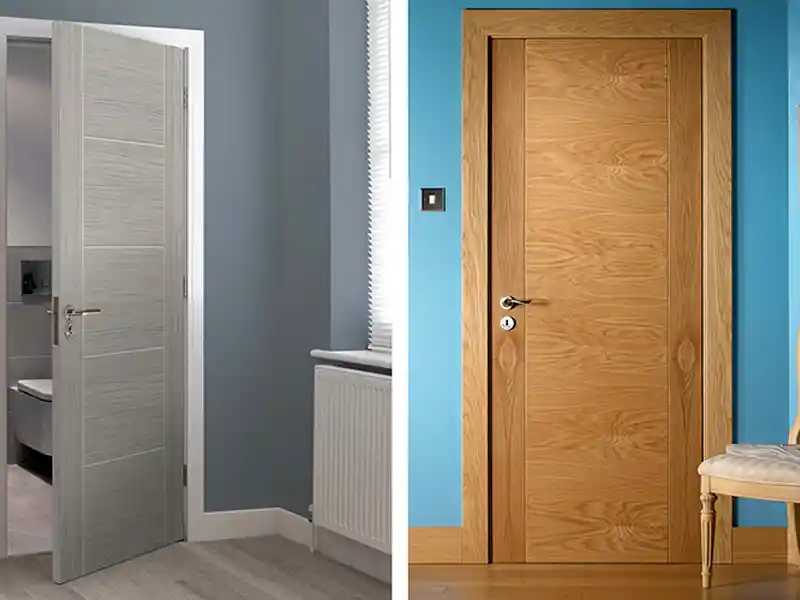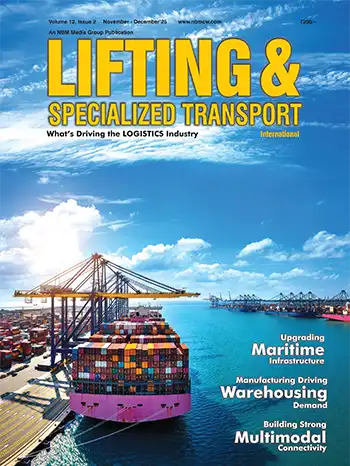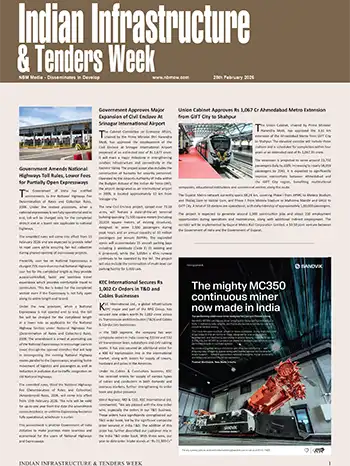Dr.h.c. Mario Schmidt, Managing Director
In India, uPVC has gained popularity because of its energy efficiency, low maintenance requirements, and long lifespan, making it the preferred material for window profiles. However, the sustainability of uPVC is still being debated. Unlike aluminium, which can be recycled forever without losing its quality, uPVC recycling is difficult. When uPVC windows are recycled, the material cannot be restored to its original quality, making its environmental impact questionable. Using virgin materials in production raises problems because it is based on crude oil extraction, which is resource-intensive and adds to carbon emissions. Advancements in the uPVC sector are addressing these challenges.
 Goa Project Lingel Windows
Goa Project Lingel WindowsIn Europe, one of the most popular trends is using recycled components in uPVC window frames. While the outside skin is composed of virgin material to preserve the product’s appearance and longevity, the inner core is frequently constructed of recycled PVC. This technology greatly reduces the requirement for fresh crude oil, reducing the carbon footprint of manufacturing uPVC windows. However, this technique is still in its early stage in India, owing to gaps in consumer awareness and a lack of governmental regulations supporting the use of recycled materials.
Despite the rising demand for sustainable construction materials, the Indian market prefers products built entirely from virgin materials. This presents a barrier to sustainable development since many consumers are unaware that uPVC windows built from recycled components can function just as well as those made from new materials and may even be more ecologically friendly. However, the transition to more recycled PVC depends on educating both consumers and manufacturers and government cooperation to enforce recycling standards.
The transition to more recycled PVC depends on educating both consumers and manufacturers and government cooperation to enforce recycling standards.
Dr.h.c. Mario Schmidt
Lingel has been at the forefront of environmental initiatives since 2011. As the construction sector embraces more sustainable methods, one issue remains: “What exactly does sustainability mean?” Sustainability is more than just a marketing term; it necessitates an extensive understanding of the materials, energy use, and product lifespan. This is especially true in the uPVC window sector, which has attracted criticism for its reliance on crude oil-based ingredients for production. The challenge is to relook at the demand for energy-efficient, long-lasting, and cost-effective solutions for environmental sustainability.
 Lingel Windows Glasss Conservatory in Germany
Lingel Windows Glasss Conservatory in GermanyHowever, the path to widespread sustainable development in India’s uPVC industry is not without obstacles. In contrast to Europe, where energy principles and minimum recyclable content standards are required, India lacks such legislation, making it harder to ensure that sustainable practices are widely followed. Implementing required certifications for uPVC goods, similar to energy-efficiency star ratings for windows, may provide essential incentives to promote change. This would help manufacturers align with sustainability goals while creating a more transparent and consumer-friendly market for energy-efficient, recycled-content windows.
Our wide range of products and assured end-to-end solutions include uPVC, Aluminium, Oak Wood, Venetian Blinds, Roller Shutters, Skylights, Glass Conservatories, Walkable Glass Bridges, Windowsills, Architraves, Uniquely Shaped Windows, Security Windows LPG & LSB (Lingel Panzer Glazer and Life Safe Box), In-Built Grills, and many more.



